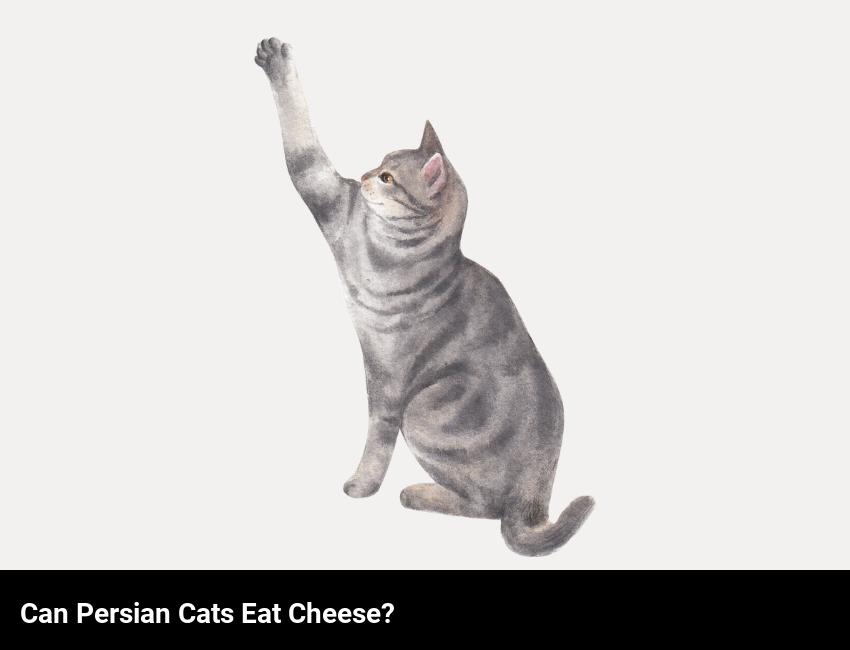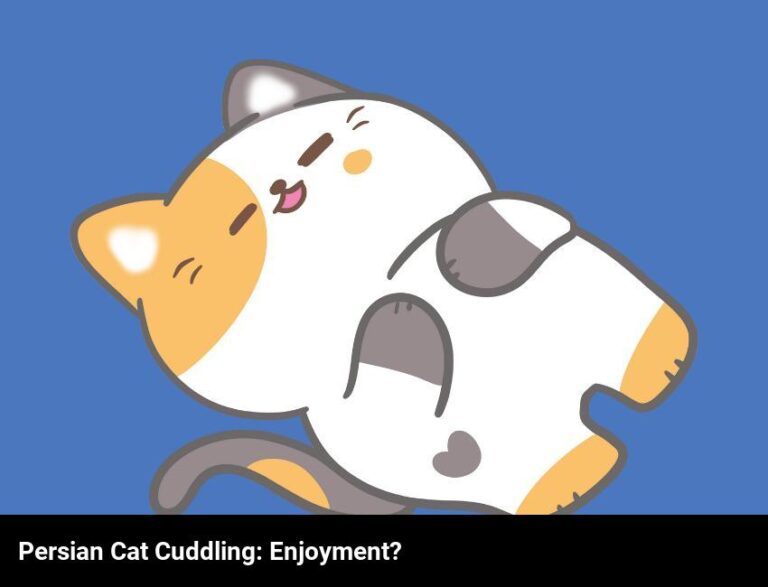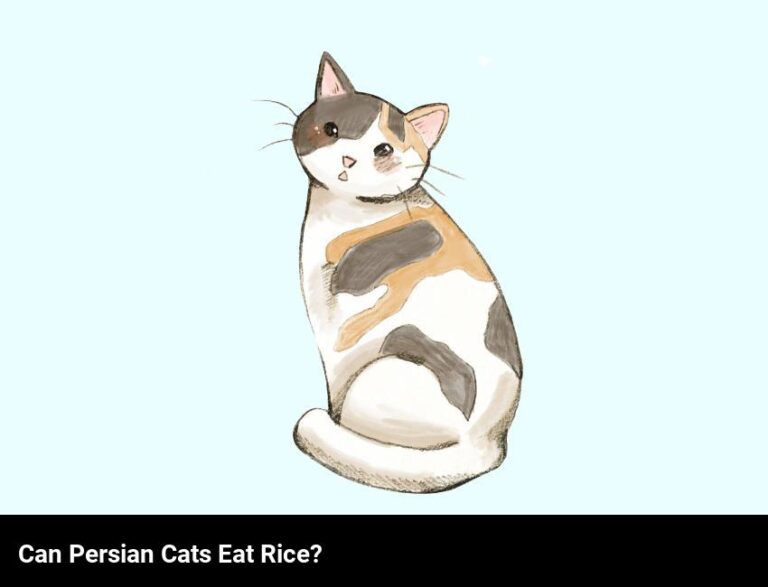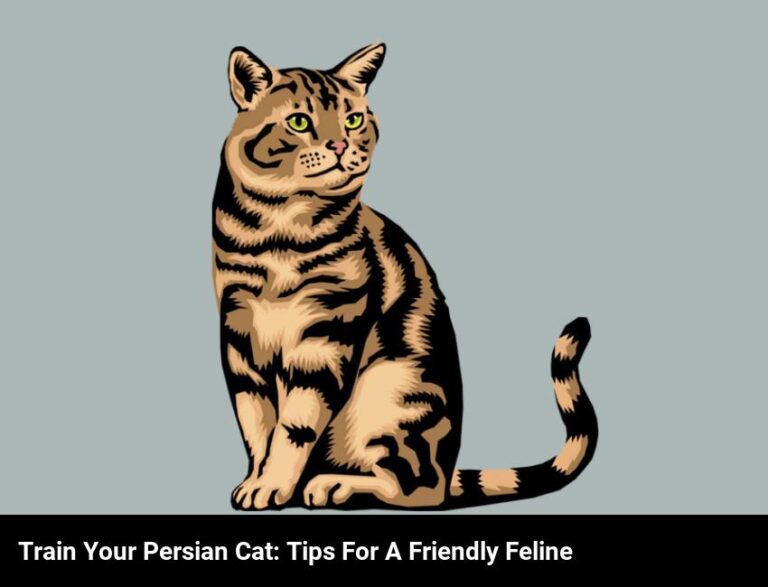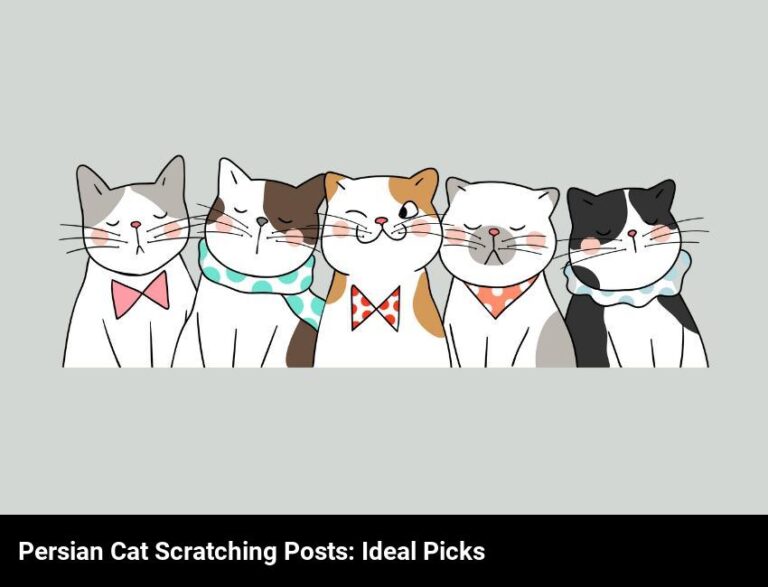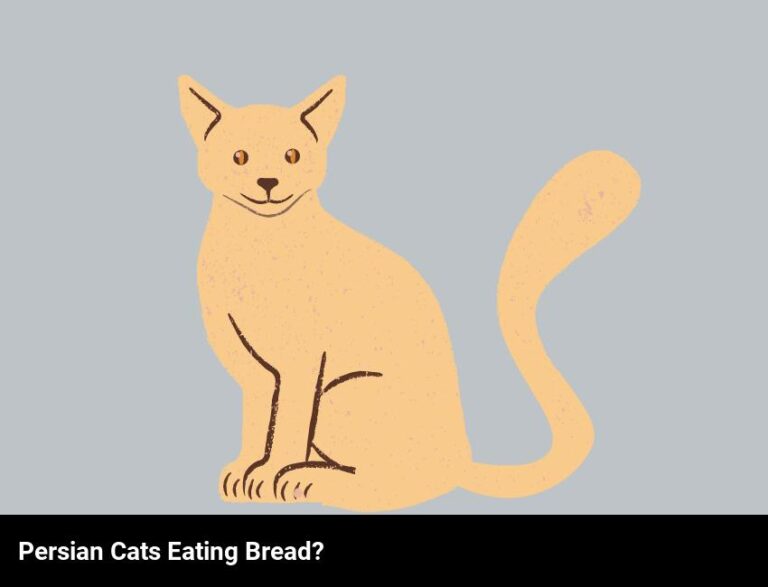Can Persian Cats Eat Cheese?
Yes, Persian cats can eat cheese in moderation. Cheese can be a source of protein and healthy fat for cats, but it should be given in small amounts as part of a balanced diet.
As a proud owner of a Persian cat, I have often wondered if cats can eat cheese. After all, cheese is a tasty treat that I enjoy myself, and I wanted to know if my Persian cat could benefit from it as well. Of course, I wanted to make sure I was giving my cat the best and healthiest food options, which is why I was so eager to find out Can Persian Cats Eat Cheese?
I began my research and discovered that, yes, Persian cats can indeed eat cheese. In fact, cheese can provide them with a number of health benefits, including extra protein and vitamins. However, I still had a lot of questions about the best types of cheese, how much and how often my cat should eat it, and if there were any dangers or alternatives to cheese.
In this blog post, I’ll be exploring all of these questions and more.
What type of cheese can persian cats eat?
Absolutely! Persian cats can eat cheese, but it’s important to pick the right kind. Hard cheeses like cheddar, Parmesan, and Swiss are great for cats, since they’re low in lactose and full of calcium and protein. Soft cheeses, like cream cheese and cottage cheese, can also be okay in moderation. Just make sure to check the label for any ingredients that may be toxic to cats, like garlic and onion.
But whatever type of cheese you choose, it’s important to give it to your cat in small amounts. Cheese can be a great snack or meal topper, but it shouldn’t be the main part of their diet as cats are obligate carnivores who need a lot of protein and fat. Also, too much cheese can lead to digestive issues, weight gain, and other health problems.
If your cat loves cheese, you can use it as a treat or a reward. It’s also a great way to give them extra nutrition, like vitamins and minerals. Just remember to keep the portion sizes small and always check the label for toxic ingredients.
Are there any dangers in feeding persian cats cheese?
Yes, there are some dangers in feeding Persian cats cheese. Cheese can be high in fat, and this can lead to weight gain. Cats that are overweight can develop a variety of health issues, including diabetes and arthritis. Cheese also contains lactose, which many cats are not able to digest properly. This can cause tummy troubles like diarrhea and vomiting.
To keep your Persian cat healthy, make sure to feed them cheese in moderation. Give them only a small portion of cheese occasionally, such as a few cubes of cheddar or Swiss cheese. This is especially important if your cat is already overweight or has pre-existing health issues.
Finally, make sure to choose a cheese that is made with all-natural ingredients. Avoid cheese that has artificial flavors, preservatives, or fillers. These can be harmful to your cat’s digestive system.
Overall, cheese can be a tasty treat for your Persian cat, but it should be given in moderation and with caution. If you do choose to give your cat cheese, make sure to select a high-quality, all-natural cheese that won’t harm your cat’s health.
What are the best types of cheese to feed persian cats?
Yes! Persian cats can eat cheese, and it can be a great source of nutrition for them. But it’s important to choose the right types of cheese, as not all cheese is created equal. Here are the best cheeses to feed your Persian cat:
Goat Cheese: This cheese is low in lactose, making it an ideal choice for cats with sensitive stomachs. It’s also high in protein and calcium, which can help keep your cat’s bones and teeth strong.
Cheddar Cheese: Cheddar cheese is a great option for cats because it’s high in protein and calcium, and low in fat. It also has a mild flavor that most cats find appealing.
Swiss Cheese: Swiss cheese is another good option for cats. It has a higher fat content than cheddar cheese, but it’s still a good source of protein and calcium for your cat.
Feta Cheese: Feta cheese is a great choice for cats because it’s high in protein, low in fat, and has a mild flavor that cats love.
Mozzarella Cheese: Mozzarella cheese is a great option for cats because it’s low in fat, high in calcium, and has a mild flavor that cats find appealing.
When feeding your cat cheese, it’s important to remember that it should only be an occasional treat. Cheese should not be used as a substitute for a balanced diet. If your cat is prone to digestive or weight issues, talk to your vet before giving them cheese.
With the right types of cheese, you can give your Persian cat a tasty treat while also providing them with essential nutrients.
What health benefits can cheese provide persian cats?
Yes! Cheese can offer numerous health benefits to Persian cats. Here are some of the key benefits:
- Cheese is a good source of protein and fat, which can help cats maintain a healthy weight.
- Cheese can be a great source of calcium, which helps cats build strong bones and teeth.
- Cheese can provide cats with essential vitamins, minerals, and fatty acids that can help keep their coats healthy and shiny.
- Cheese provides cats with additional energy, which can help them stay active and healthy.
- Cheese can also help cats digest their food better, as it contains enzymes that can break down food more easily.
Overall, feeding your Persian cat cheese in moderation can provide them with numerous health benefits. Cheese can be a great addition to your cat’s diet, as long as you keep an eye on their calorie intake and keep the serving size small.
How much cheese should persian cats eat?
Absolutely! Persian cats can eat cheese, and they should. In moderation, of course. Cheese is a great source of protein and can provide your Persian kitty with the essential fatty acids needed to stay healthy and energetic. But you should also be mindful of how much cheese your cat is eating.
Too much cheese can lead to weight gain, so you should feed your Persian cat no more than ¼ cup of cheese per day. Start with a small amount and adjust as needed. You can mix the cheese in with other food, like wet or dry cat food, to make sure your cat is getting enough nutrients and not just cheese.
When selecting cheese for your Persian cat, stick to mild varieties. Try to avoid flavored cheeses, as these can contain artificial ingredients that can be harmful to your cat’s health. You also want to stay away from cheese with high levels of fat and sodium, as these can also lead to weight gain and other health issues.
Cheese can be a great treat for your Persian cat, but make sure you feed it in moderation. Give your cat plenty of fresh water and stick to healthy, low-fat cheeses. With the right amount, your Persian cat can enjoy the delicious and nutritious benefits of cheese.
How often should persian cats be fed cheese?
It depends on the cat! Some Persian cats love cheese, while others may be lactose intolerant or simply not interested. When it comes to cheese, the best approach is to start with small amounts, and see how your cat reacts.
It’s best to introduce cheese gradually, as part of your cat’s regular diet. If your cat loves cheese, you can give them a small amount once a day. If your cat doesn’t seem to like it, you can cut back to once a week or even once a month.
It’s important to remember that cheese should only make up a small part of your cat’s diet. You should never give your Persian cat cheese as a meal replacement, as it’s not nutritionally balanced for cats. Cheese should be seen as an occasional treat, not a regular part of your cat’s diet.
You should also be mindful of the type of cheese you give your cat. Avoid processed cheese and stick to milder varieties. Cheddar, feta, and cottage cheese are all good options. Make sure the cheese you give your cat is free of additives and preservatives, and always check with your veterinarian before introducing it into your cat’s diet.
So, in conclusion, the answer to the question of how often a Persian cat should be fed cheese depends on your individual cat. Start with small amounts, and always consult your veterinarian for advice. Cheese can be a fun treat for your cat, but it should never replace a nutritionally balanced diet.
Are there any alternatives to cheese that persian cats can eat?
Yes! Persian cats can enjoy a variety of alternatives to cheese. These alternatives still provide the protein and fat that cats need, but are free from lactose and other lactose-containing ingredients.
One alternative to cheese for Persian cats is fish. Fish is a great source of protein, and cats love it. You can give your Persian cat canned tuna, salmon, or other varieties of fish. Just make sure to check the ingredients list on the can to make sure it doesn’t contain any dairy products.
Another alternative to cheese is cooked, plain chicken. This is a great source of protein and, again, cats love it. You can give your cat cooked, plain chicken breast, or even fry up some ground chicken and serve it to your cat.
You can also give your Persian cat a variety of other proteins such as boiled eggs, cooked beef, and cooked ground turkey. All of these will provide your cat with the nutrition they need without the lactose.
Finally, you can give your cat a variety of fruits and vegetables. Fruits and vegetables provide cats with the vitamins and minerals they need to stay healthy. Just make sure to only give your cat small amounts at a time, and never give them grapes, raisins, or onions.
So, there are plenty of alternatives to cheese that you can give your Persian cat. They all provide protein and fat, and are free from lactose and other lactose-containing ingredients. With a little creativity, you can come up with plenty of delicious meals for your Persian cat to enjoy.
How can you make sure your persian cat is getting enough cheese in its diet?
Yes, Persian cats can eat cheese! However, cats are obligate carnivores, so you should never make cheese the primary source of protein and nutrition in their diet. Cheese can, however, be a great source of calcium, fat, and protein, and can be a great way to give your Persian cat the occasional treat.
When considering how to make sure your Persian cat is getting enough cheese in their diet, it’s important to remember that cats don’t require excessive amounts of dairy, so don’t go overboard. A little bit of cheese a few times a week should be plenty. Make sure to opt for low-fat, low-sodium varieties, as too much fat and salt can be hard for cats to digest.
When introducing cheese to your Persian cat’s diet, start slow and make sure to offer them only small amounts at a time. Watch for any signs of upset stomach, such as diarrhea or vomiting, as cats can be sensitive to dairy. If your cat seems to tolerate the cheese well, you can offer them a bit more the next time.
It’s also important to remember that cheese should never replace a balanced cat diet. Cats need a lot of moisture and protein to stay healthy, so make sure to provide them with plenty of fresh water and lean meats. Cheese should be used in moderation and only as an occasional treat.
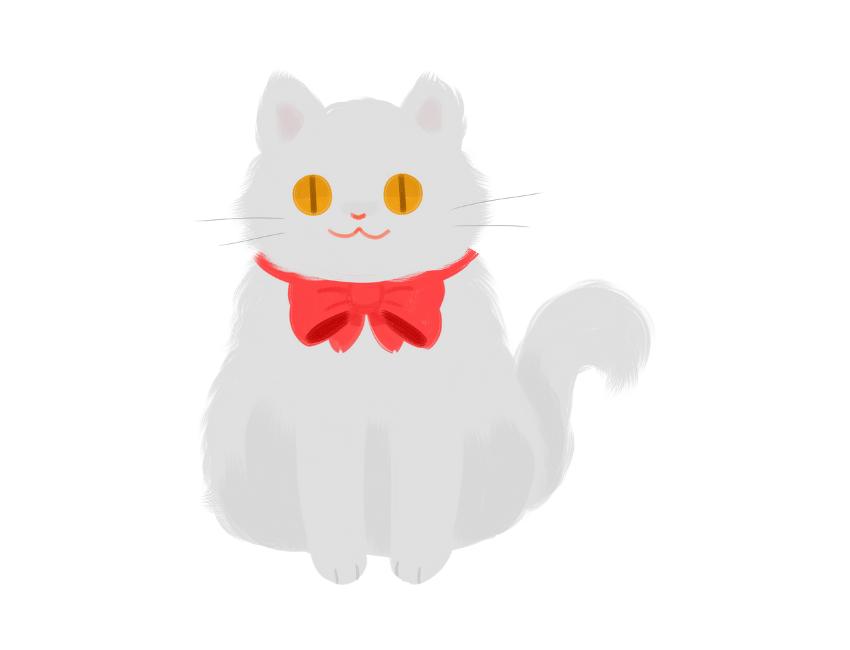
Frequently Asked Questions
How can you tell if your persian cat likes cheese?
If your Persian cat seems interested in cheese, they will likely sniff and lick it. If they consume the cheese, it is a sure sign that they enjoy it. Additionally, if your cat meows or purrs when offered cheese, that is another sign of enjoyment. Watching for physical cues and reactions when presenting cheese to your cat is the best way to tell if they like it.
How can you keep your persian cat safe when giving them cheese?
When giving cheese to your Persian cat, make sure it is in small quantities and is an appropriate type of cheese. Avoid high-fat varieties such as feta or blue cheese and opt for low-fat varieties such as cottage cheese. It is also important to monitor your cat to ensure they do not eat too much cheese.
What other dairy products can persian cats enjoy?
Yes! Persian cats can enjoy other dairy products such as yogurt, cottage cheese, and cream cheese. You can also give them a small amount of ice cream or milk as an occasional treat. Make sure to feed them these products in moderation and monitor their health to ensure they are not having any negative reactions.

